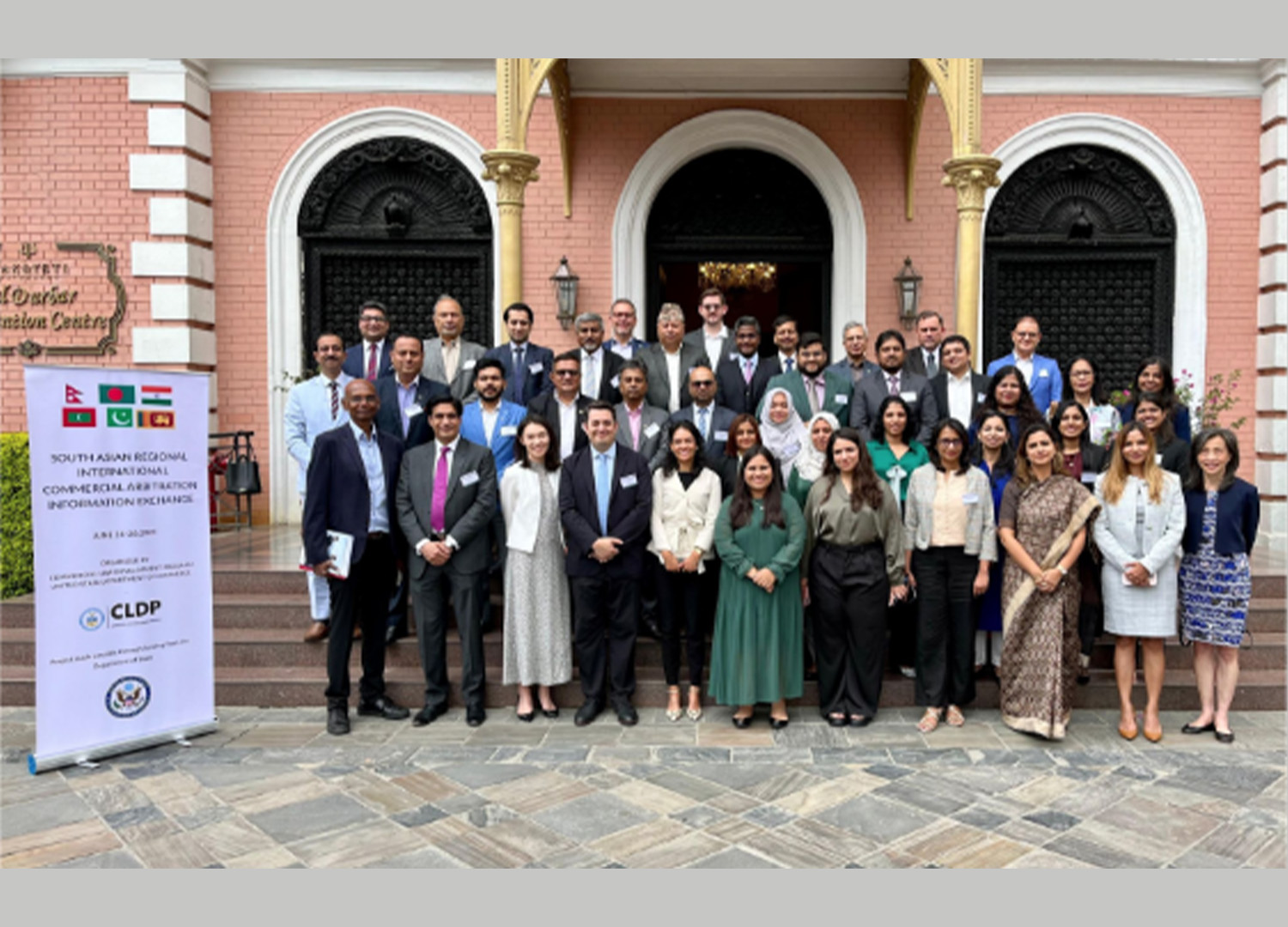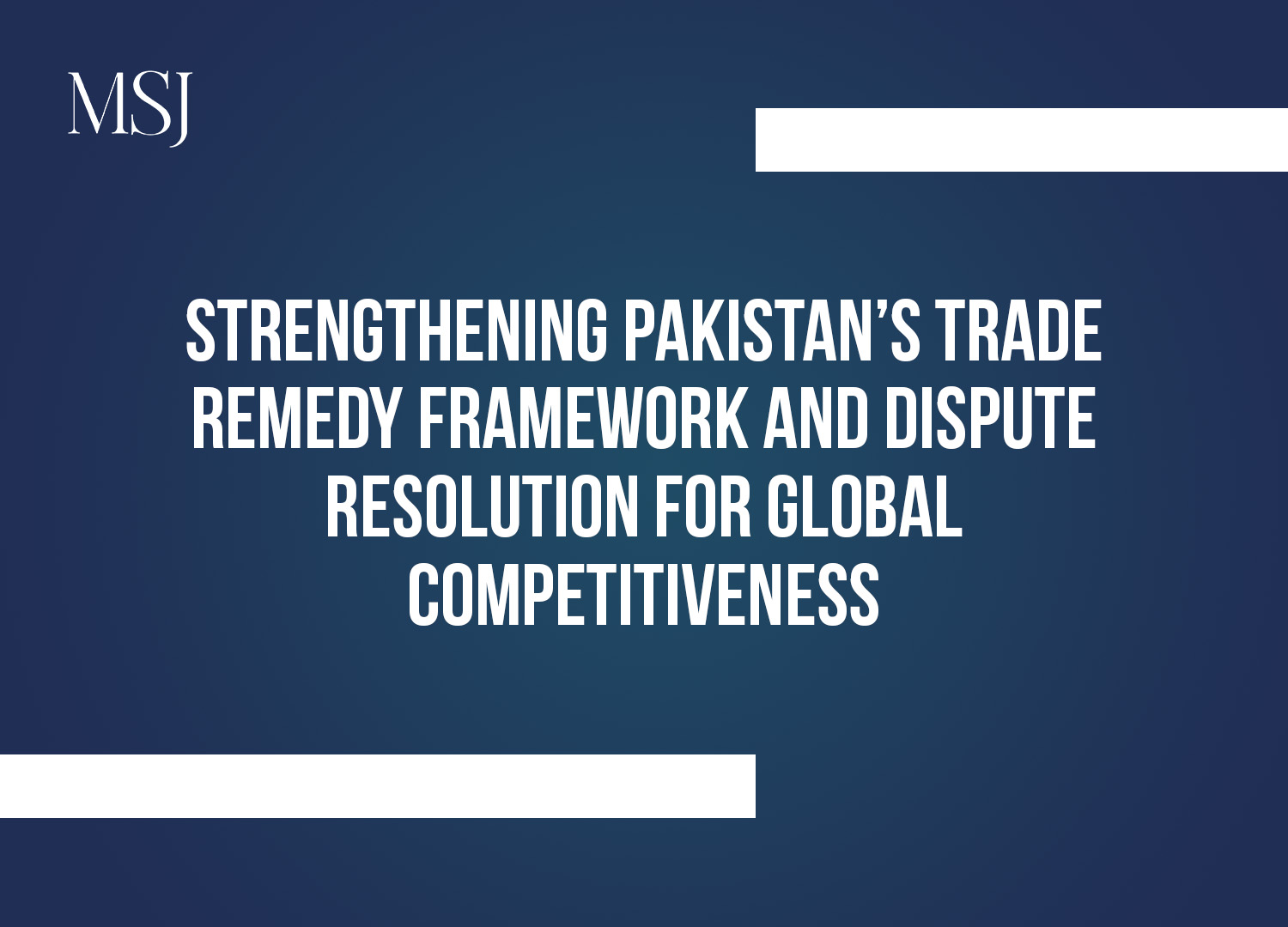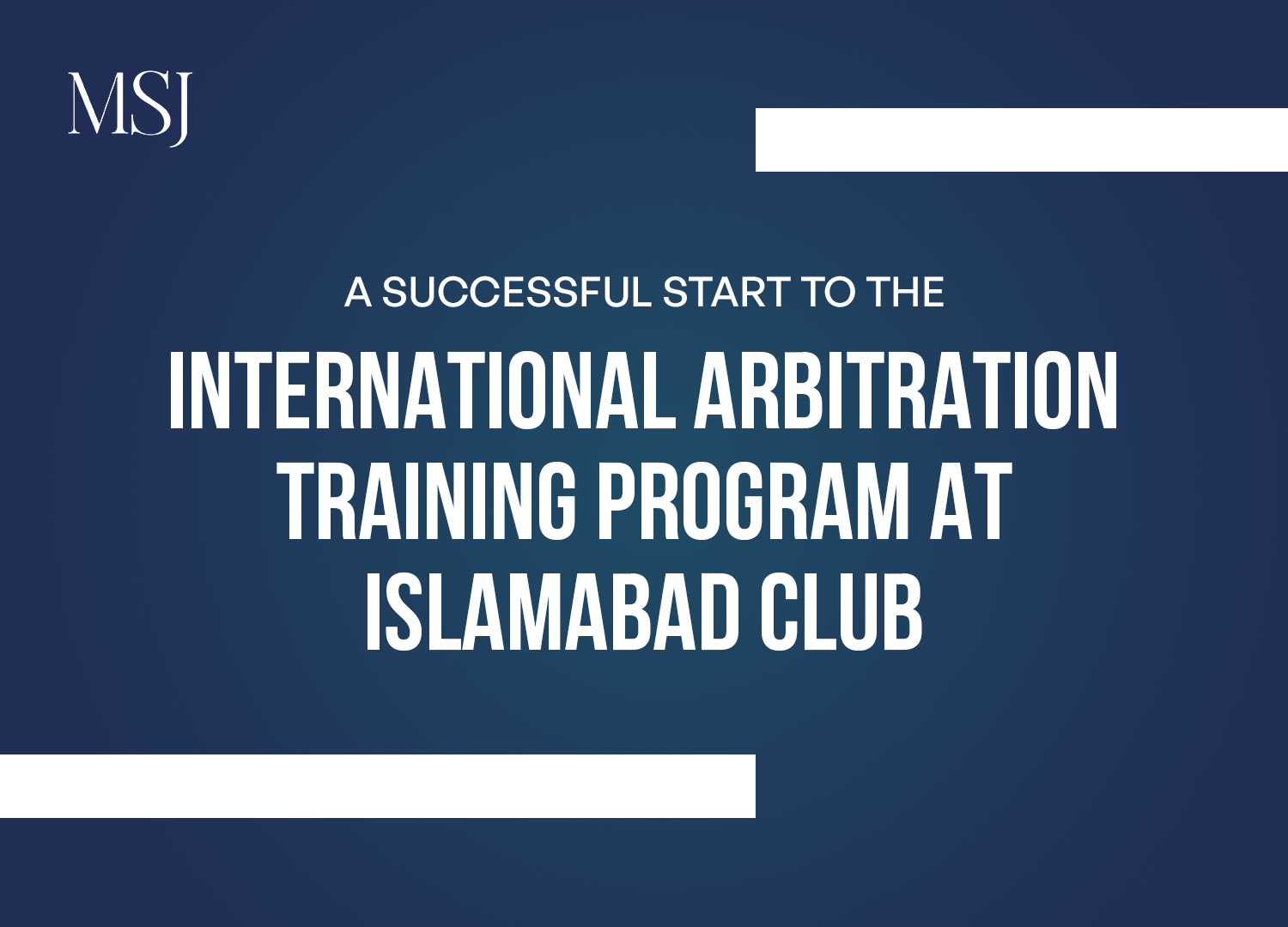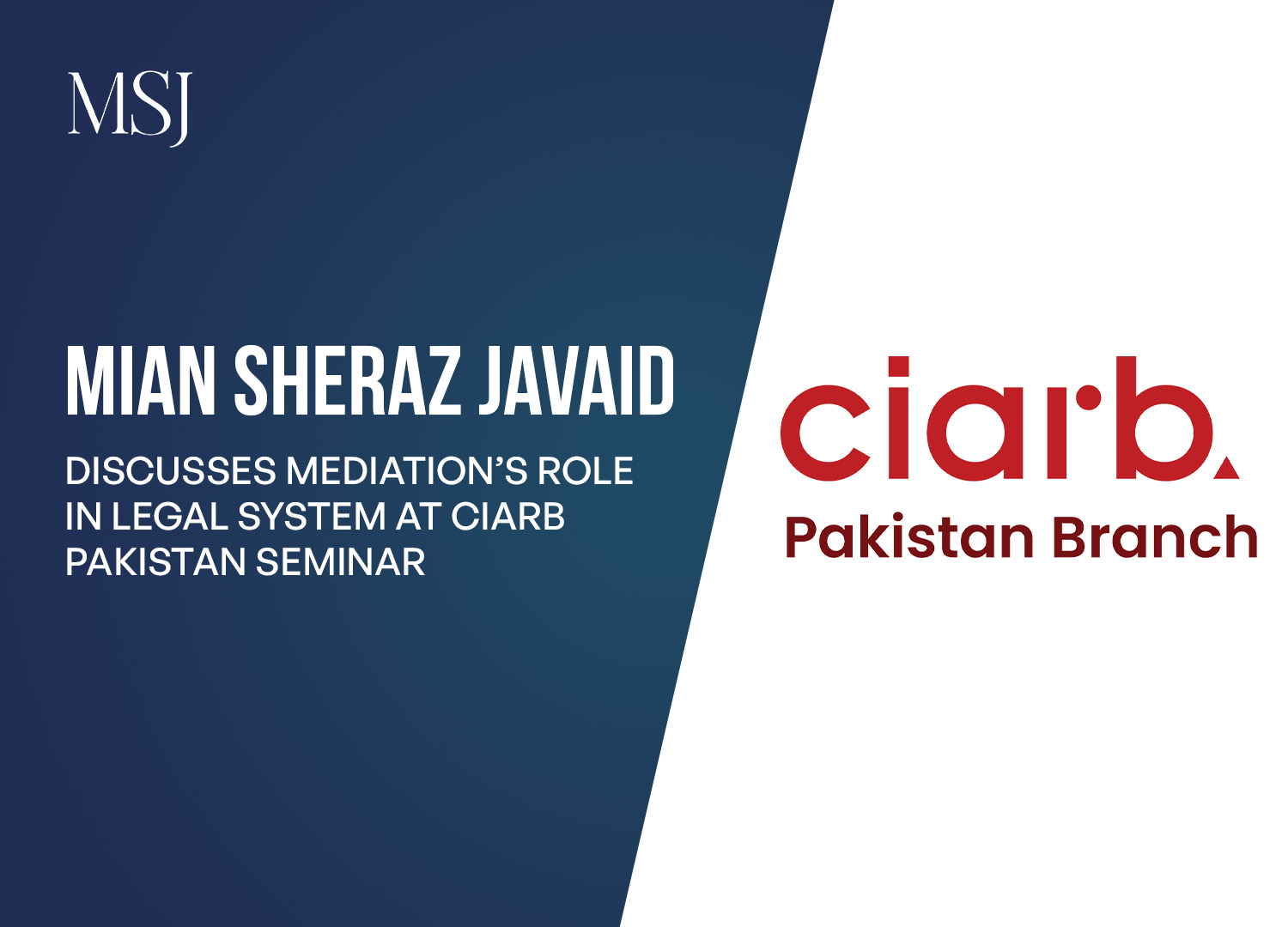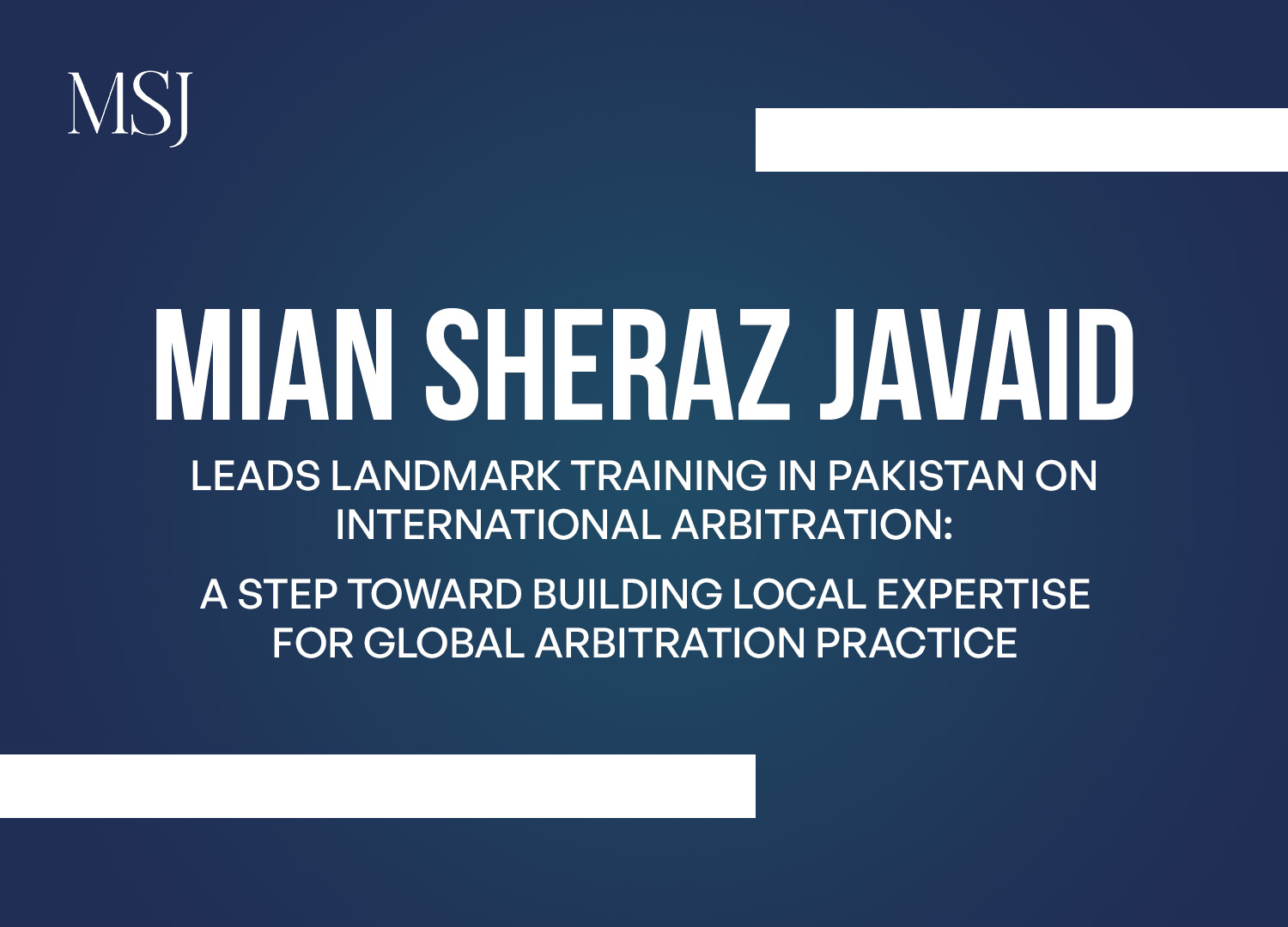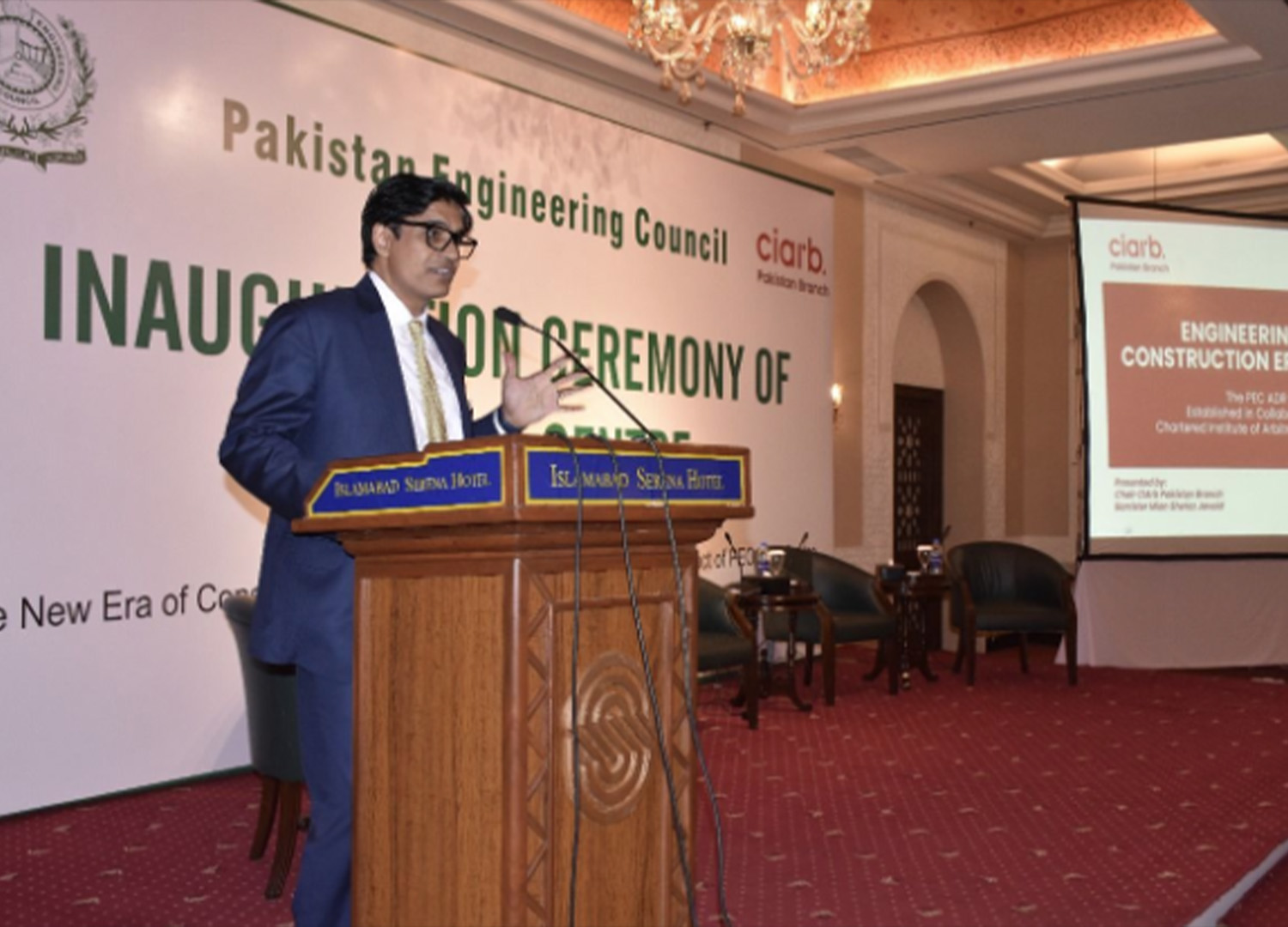Mian Sheraz Javaid Pioneers the Ciarb Accelerated Route to Fellowship Program in Pakistan: A Milestone for the Country's Arbitration Landscape
Mian Sheraz Javaid successfully tutored the first batch of candidates for the prestigious Chartered Institute of Arbitrators (Ciarb) Accelerated Route to Fellowship (ARF) program. This marks a significant milestone in the development of a local pool of experts trained in accordance with Ciarb’s gold-standard courses, setting the stage for a new era in arbitration in the country. The training program is poised to shape the future of dispute resolution in Pakistan by cultivating professionals capable of handling complex international arbitration cases with the highest level of competence.
Mian Sheraz Javaid led the first batch of candidates through the ARF program, which is an experience for practitioners practicing arbitration at their workplace. His leadership is testimony to his work in dispute resolution but also highlights the very position he holds in furthering the standard of arbitration within Pakistan.
The Accelerated Route to Fellowship: A Rigorous Pathway
The Accelerated Route to Fellowship is the senior most advanced program from Ciarb, which provides for speedy passage through from among its ranks, so far qualified to move straight on into full Fellow, holding this prized and elite designation FCiarb, international membership conferring an internationally accepted designation as signifying substantial professional know-how in capability.
This course is specifically tailored for individuals who have substantial experience in arbitration and focuses on the procedural and legal aspects of an arbitration hearing, especially in the international context. The program includes three critical components: oral assessment, written assignments, and an award-writing examination. These are specifically designed to ensure that candidates acquire practical skills as well as theoretical knowledge in conformity with the Ciarb requirements.
The ARF course is targeted essentially at practicing attorneys with at least ten years' experience in domestic litigation and/or dispute resolution; the format adopted for the delivery of the course serves to provide those candidates an ability to show aptitude in terms of arbitration management and in arbitration law in terms of international contexts. Upon successful completion, candidates may make an application for the Fellowship status-which entails peer interview process to review individual professional standing, as well.
Mian Sheraz Javaid’s Role in the ARF Program
Sheraz's role in facilitating the ARF program in Pakistan is invaluable. As the first person to tutor the program locally, Sheraz has not only contributed to enhancing the legal framework of Pakistan but also to fostering the professional development of aspiring arbitrators. His efforts have laid the foundation for the creation of a pool of local experts who are equipped with the tools and knowledge necessary to engage in high-level arbitration work on the international stage.
In his reflections on the success of the first batch of ARF candidates, Sheraz said that he felt proud as he was a part of this milestone achievement for Pakistan. "I am honored to have tutored the first batch of candidates for Ciarb's Accelerated Route to Fellowship in Pakistan.". This is a great stride in the direction of setting up a local pool of experts for the country, trained on lines of Ciarb's gold-standard courses," shared Sheraz. His views highlight the significance of developing a strong community of trained arbitration professionals in Pakistan who can rightly uphold the integrity and quality of arbitration in the country while keeping international legal standards under consideration.
As stated by Sheraz, the successful culmination of the ARF program for these candidates in the first batch is just the start of what will be a transformational journey for Pakistan's arbitration landscape. The newly trained professionals will have a very crucial role in the shaping of the future of dispute resolution, not only within Pakistan but also within the international legal and arbitration community at large.
A Bright Future for Pakistan’s Arbitration Community
Implementation of the ARF program in Pakistan is very successful and holds tremendous promise for the future of dispute resolution in the country. The more interlinked the world becomes, the more international arbitration has evolved as the tool of solving tough commercial disputes with legal elements. The newly minted Fellows through the ARF program will help to provide the expert and knowledge assistance needed in order to manage highly profiled cases of international arbitration, thereby bringing Pakistan's law professionals at par to handle the exponentially increasing demand of skilled arbitrators across the country.
This impact is not limited to the immediate batch of candidates. When these professionals continue their careers, their contributions in the arbitration field will probably be an inspiration to the next generation of aspiring arbitrators. The training and qualification they will achieve through the ARF program also strengthens Pakistan's position in the international arbitration world since these Fellows are identified as being part of an elite group of those who have received a rigorous, international standard, certification process.
For Pakistan, this victory represents something more than the successful culmination of a training program. It signals a new way in which the country is coming to this field of dispute resolution, from entirely external to home-based practitioners equipped to deal with the legal complexities of the modern world. In fact, Sheraz's efforts, coupled with the success of these first candidates, set a good stage for a future where Pakistan will play a much more prominent role in the international arbitration community."
Conclusion: A New Chapter in Arbitration Education
In a nutshell, Mian Sheraz Javaid's teaching the first batch of candidates for the Ciarb Accelerated Route to Fellowship program has been an important step towards professionalizing arbitration in Pakistan. Through his leadership and the successful completion of this program, the foundations have been laid for a new generation of highly skilled professionals specializing in arbitration who are going to meet the demands of the international legal community.
As these new Fellows enter practice, their newly acquired skills and knowledge will, apart from delivering a high number of complex cases to resolution under international arbitration, add value and depth to Pakistan's le progal system as well as capacity in dispute resolution. Now, Pakistan's future at dispute resolutionmises much better, and this impact will echo for many more years to come.



